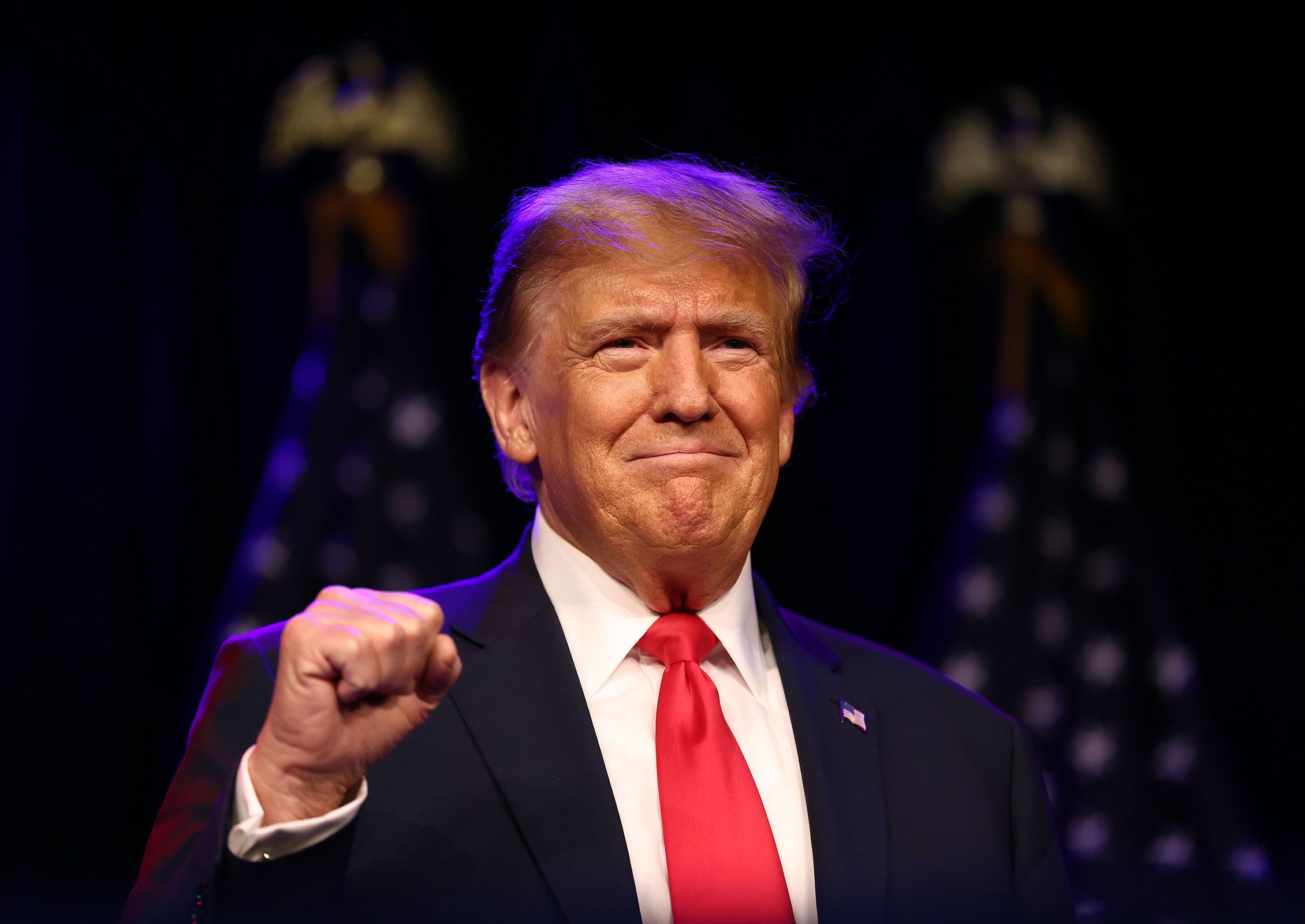Former President Donald Trump emerged victorious in Nevada’s Republican presidential caucuses on Thursday. The win was essentially a foregone conclusion after his most prominent competitor, ex-South Carolina Governor Nikki Haley, decided not to vie for the state’s delegates. This marks Trump’s third consecutive victory in the Republican contests, having previously won in Iowa and New Hampshire, propelling him closer to the GOP’s 2024 presidential nomination.
The Nevada caucuses took place two days post the state’s primaries, where President Joe Biden dominated the Democratic contest. Interestingly, “none of these candidates” topped the Republican list, surpassing Haley. The Nevada Republican Party, steered by Trump’s allies, chose not to allocate its delegates via a party-run primary, thereby excluding primary participants from the caucus ballots. Consequently, Trump’s only opponent was the relatively unknown Dallas pastor, Ryan Binkley.
Prior to his victory, Trump attended a caucus-night watch party in Las Vegas, where he humorously commented on his political fortunes amidst skepticism from Supreme Court justices over Colorado’s decision to exclude him from the 2024 primary ballot and a special counsel’s critical report on Biden’s handling of classified documents.
Trump’s watch party was also attended by former House Speaker Kevin McCarthy, who shared a conversation with the former president before his victory speech. Trump also dined with Miriam Adelson, widow of the late billionaire Sheldon Adelson, before the watch party. Adelson, who has yet to endorse a 2024 candidate, has known Haley for years and has previously supported her causes. Her late husband was Trump’s largest donor in his 2016 campaign.
In his victory speech, Trump took a jibe at Haley for her performance in Tuesday’s primary. The most votes went to “none of these candidates,” an option on Nevada ballots allowing voters to express dissatisfaction with their choices. Trump also won the Republican caucuses in the US Virgin Islands, defeating Haley for the territory’s four delegates.
Haley experienced a disappointing outcome in Nevada’s nonbinding primary, finishing second to “none of these candidates,” likely reflecting many GOP voters’ preference for Trump. Despite no delegates being at stake, the primary represented a setback for Haley in her bid to demonstrate her viability to Republican donors and voters ahead of her next major contest with Trump in the South Carolina primary on February 24.
Trump had encouraged his supporters in Nevada to bypass the primary and vote in the caucuses. The Nevada Republican Party, led by Trump loyalists, decided to hold caucuses this year and award the state’s delegates to the Republican National Convention based on those results. It also warned candidates who participated in the primary that they would not be eligible for the caucuses or to receive any delegates.
Democrats awarded their 2024 presidential delegates from Nevada based on the results of Tuesday’s primary, which President Joe Biden won decisively. The lack of competitive primaries in Nevada means major presidential contenders paid little attention to the Silver State. However, this is likely to change in the fall, when Nevada, a state Biden narrowly won in 2020 but where Republicans flipped the governor’s office in 2022, will be a presidential and Senate battleground.
This story has been updated with additional reporting. Contributions to this report were made by CNN’s David Wright, Ethan Cohen, Terence Burlij, and Alayna Treene.

